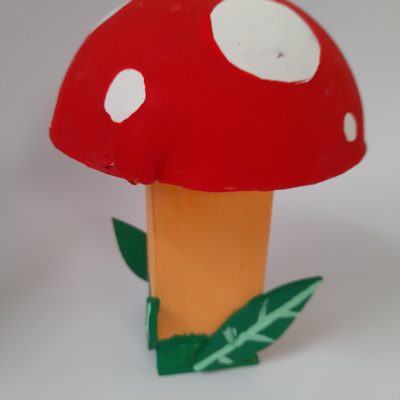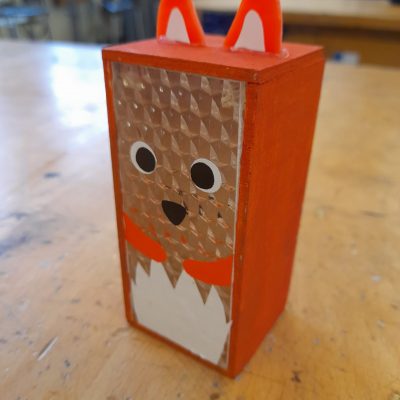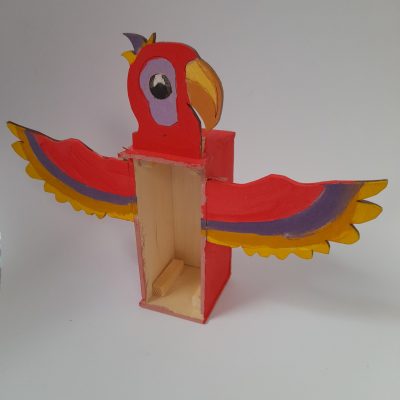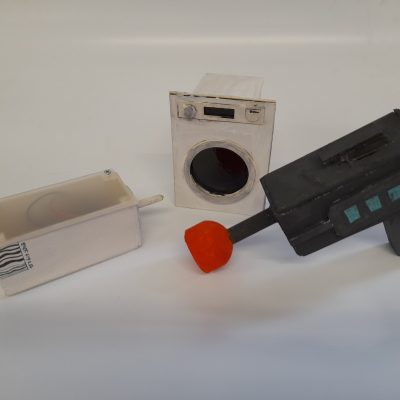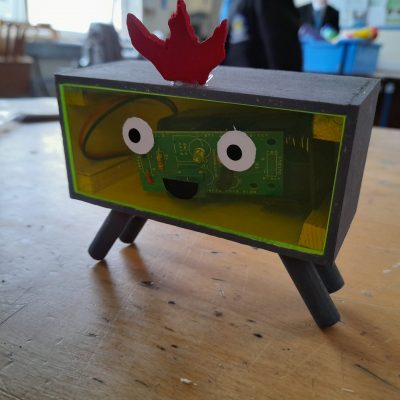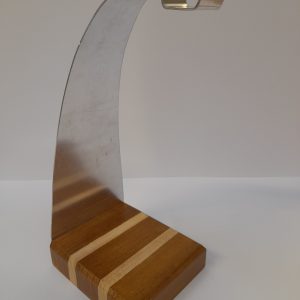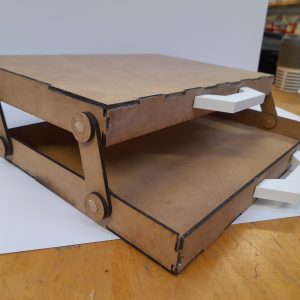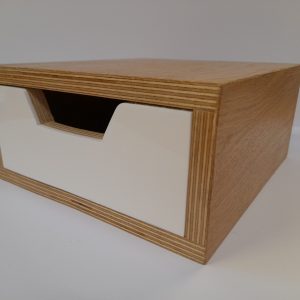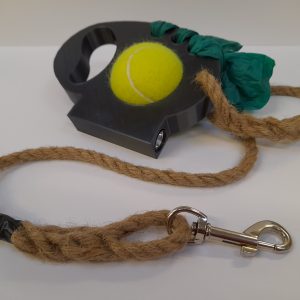Design & Technology
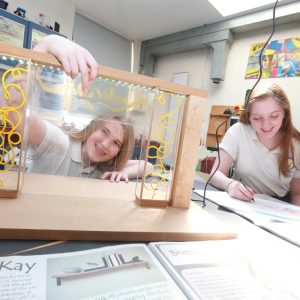
Curriculum Leader: Mr A. Jobson
Our D&T vision is to foster students’ curiosity and encourage a creative, problem-solving mindset.
We do this through studying contemporary and traditional design by working through a range of topics, including design and make projects, modelling activities and focused research tasks.
The subject is taught by an enthusiastic group of teachers who have a wide variety of analytical, design and making skills, including traditional hand techniques, and up-to date CAD/CAM skills. We use industry-standard equipment and creative processes that enable students to be well-informed when making their chosen outcomes and inspired when exploring future learning or design/manufacturing-based career options.
The department consists of two modern Food Preparation and Nutrition rooms, four well equipped multi-media workshops, two Textiles rooms and a small dedicated ICT suite. We encourage pupils to make use of all facilities on offer, including the laser cutter and 3D printers.
At Key Stage 3, students are taught in four one-hour lessons per fortnight in Design and Technology, focusing on the key skills of investigation, designing, making and evaluating.
The lessons are divided between product design, textiles and food preparation and nutrition to allow students to develop skills and knowledge in all areas of the subjects with a multi-disciplinary approach.
Pupils work on the following activities during the course of the year:
Year 7 | Number of lessons |
| Year 9 | Number of lessons |
| Year 9 | Number of lessons |
Isometric drawing | 3 |
| Room organiser | 7 |
| Pizza cutter | 7 |
Sketchup | 4 |
| Book cover | 10 |
| Orthographic drawing | 2 |
Mechanisms | 5 |
| Programming | 3 |
| Test | 1 |
Christmas decoration | 3 |
| Polymers | 4 |
| Specialist technical research | 3 |
Test | 1 |
| Test | 1 |
| Mirror and jointing project | 10 |
Night light circuit and box | 12 |
| Structures | 8 |
| Street Scene project | 10 |
Test | 1 |
| Alternative energy | 3 |
| Test | 1 |
Flat pack toy | 7 |
| Test | 1 |
|
|
|
Pupils will have the option to continue with D&T in KS4, specialising in either Product Design or Textiles.
To find the programme of study for D&T, please click here.
To access the Food Recipe Booklets, click on the following links:
Here are some examples of work from our KS3 students:
Design Technology
Pupils will study an exciting and diverse range of disciplines covering all areas of Design and Technology, including investigations into design styles, modern and contemporary designers and issues influencing designers today.
Pupils will learn how systems work to enhance people’s lives, gain a greater appreciation of the different cultural effects that are present in a multi-cultural environment, in addition to developing a greater understanding of how materials, processes, systems and products have evolved as technology has developed.
Year 10 pupils will focus more on a material specialism, whereas Year 11 will be spent covering a major project that will contribute to the pupils’ final GCSE grade, as well as preparing for the end of year examination.
The AQA GCSE specification that can be viewed here.
The breakdown of this course is 50% Non-examined assessment, 50% Examination.
Here are some examples of our KS4 student’s work:
Food Preparation and Nutrition
Pupils in years 10-11 have the opportunity to study the new and exciting Food Preparation and Nutrition course, which focuses on practical cooking skills to ensure students develop a thorough understanding of nutrition, food provenance and the working characteristics of food materials.
At its heart, this qualification focuses on developing students’ practical cookery skills to give them a strong understanding of nutrition.
Food preparation skills are integrated into five core topics:
- Food, nutrition and health
- Food science
- Food safety
- Food choice
- Food provenance.
The breakdown of this course is 15% Food Investigation, 35% Food Preparation assessment, 50% Examination.
To find the specification for Food Preparation and Nutrition, click here.
As an alternative to this course, we offer a BTec Hospitality and Catering course.
Hospitality and catering is a dynamic, vibrant and innovative sector delivering vital jobs, growth and investment in the heart of our local communities – important culturally, socially and economically. The sector is a major contributor to the UK economy, employing 2.9 million. Hospitality is the 3rd largest private sector employer in the UK; double the size of financial services and bigger than automotive, pharmaceuticals and aerospace combined. Employment can range from waiting staff, receptionists and catering assistants to chefs, hotel and bar managers, and food technologists working for supermarket chains. The Btec course is an ideal route for students considering a career in these areas.
The BTec specification for Hospitality and Catering is found here
BTEC Engineering and BTEC Construction
We run two Level 1/2 BTEC courses in which pupils will explore and practise using a range of engineering or construction processes to develop skills needed to solve real-life problems and to confidently make products.
Pupils will develop a range of skills, including problem solving, independent-learning, communication and teamwork skills in order to complete tasks in an effective, skilful and timely manner.
Practical coursework requires pupils to respond to a real life brief and to develop an engineering-based product.
Both courses end with an examination.
Achievement at Level 2 provides a suitable foundation for further study within the sector at Level 3 including A level Design and Technology-Product Design or progression onto an apprenticeship.
The BTEC specification for Engineering is found here.
The BTEC specification for Construction is found here.
A level Design and Technology : Product design
The Product design course enables pupils with a genuine interest in designing and making to continue studying in the subject at A-Level. Students will learn about a range of designers, design styles and principles, as well as being given the opportunity to experiment in more depth with a range of modern materials and techniques.
The major coursework project is based on a student selected brief and will enable them to demonstrate their skills in research and development, prototyping, analysis and evaluative skills, all valued attributes employers look for.
The breakdown for the course is: 50% Design and Make Project (non-examined assessment),
2x examinations (Technical Principles (30%) and Designing and Making Principles (20%).
Here is the specification for Product Design.
A- level Design and Technology: Fashion and Textiles
This is an exciting course which will appeal to those that have a serious interest in fashion and textiles. Students will gain a real understanding of what it means to be a designer. Coursework involves an in depth project, working to a design brief set by the students. The course is underpinned by creative, thought provoking practical skills and theoretical knowledge. Students investigate designers and the history of fashion, industrial manufacturing issues, fabric manipulation, construction techniques and the development of design work through drawing and CAD (including fashion illustration). Students investigate smart and modern materials, the properties of fabrics and current trends in the textiles market. It is not necessary to have studied Textiles at GCSE to be successful in this course.
The breakdown for the course is: 50% Design and Make Project (non-examined assessment),
2x examinations (Technical Principles (30%) and Designing and Making Principles (20%).
Here is the specification for Fashion and Textiles:
It is not necessary to have studied Textiles at GCSE to be successful in this course.
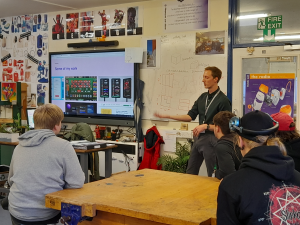
In addition to the projects we teach in lessons, we have taken students on trips to:
- London Design Museum
- Sustainable Architecture sites
to gain inspiration for their own work and to see how the skills we teach might benefit them in the future.
We also enter students into competitions such
- Rotary Club technology challenge,
- ‘Women in Engineering’
- Masterchef
where pupils are able to practise their engineering skills or showcase their work.
We invite professionals into the D&T department to help guide students with career planning and to gain first-hand advice when completing NEA coursework.

